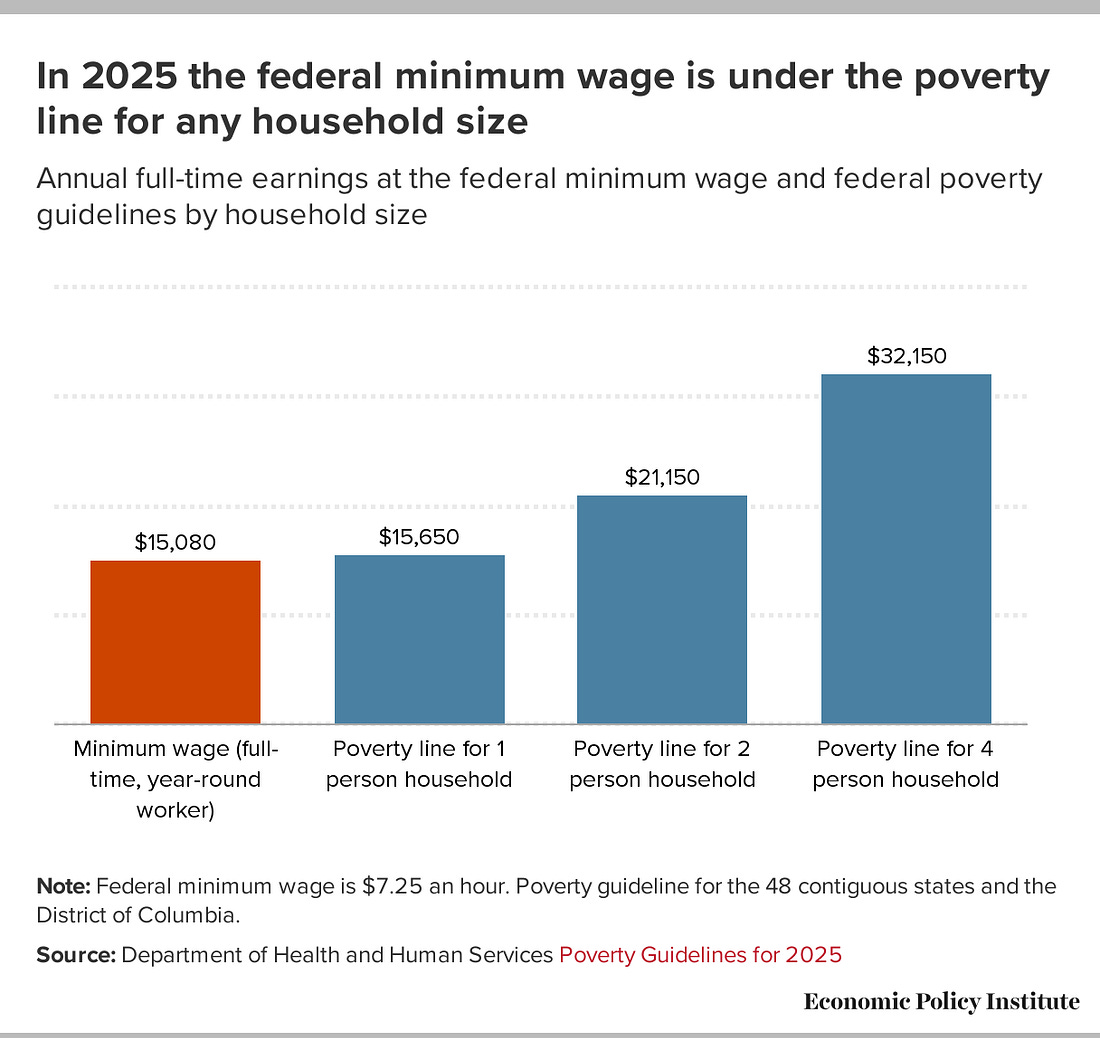Minimum Wage

Minimum Wage Myths
Raising minimum wage will devastate small business and lead to job loss
Economists have found that proposed wage increases to levels like $17 an hour would not have a significant enough impact on bottom line to affect job numbers. Other studies show increasing minimum wage to a reasonable rate to keep up with inflation would create little or no job loss. Economics professor Arindrajit Dube from the National Bureau of Economic Research and Ben Zipperer from EPI found that in the last 35 years of studies on minimum wage the data consistently shows that job numbs would only decline slightly but that total earnings of all low-wage workers would increase overall. Additionally they found that by expanding the samples to include all low wage workers (not just teens looking for part time jobs). They found earnings combined would increase by 2%, thus creating new jobs.
Handing out more money through programs like Medicaid and SNAP without work requirements allow people to depend on the government without valuing work
2 out of 3 non-elderly adults Medicaid enrollees do paid work, the majority of the third who do no work have a disability according to the Center on Budget and Policy Priorities. 86% of SNAP households with working age adults who are not receiving disability benefits report earnings. Since these people are already working - limiting these programs would not likely increase employment rates.
No Tax on Tips Could Solve a Lot of Financial Issues for Tipped Workers
The amount of money saved on not taxing tips would not be enough to offset the wage gap currently existing with sub minimum wage. In 2022, a yale budget lab study noted that 37% of tipped workers do not even currently make enough income to pay federal income tax. Only 25% of Americans work in tipped positions so this would not solve problems for the other minimum wage jobs. Sub minimum wage for tipped workers is only 2.13 an hour and does not accomodate for customers who refuse to tip, undertip, or when business doesn’t see customers during an hour of work. At it’s best this plan barely makes a dent in American’s finance problems. At worst, it will create more “tipped” work that puts people at the mercy of the sub minimum wage.